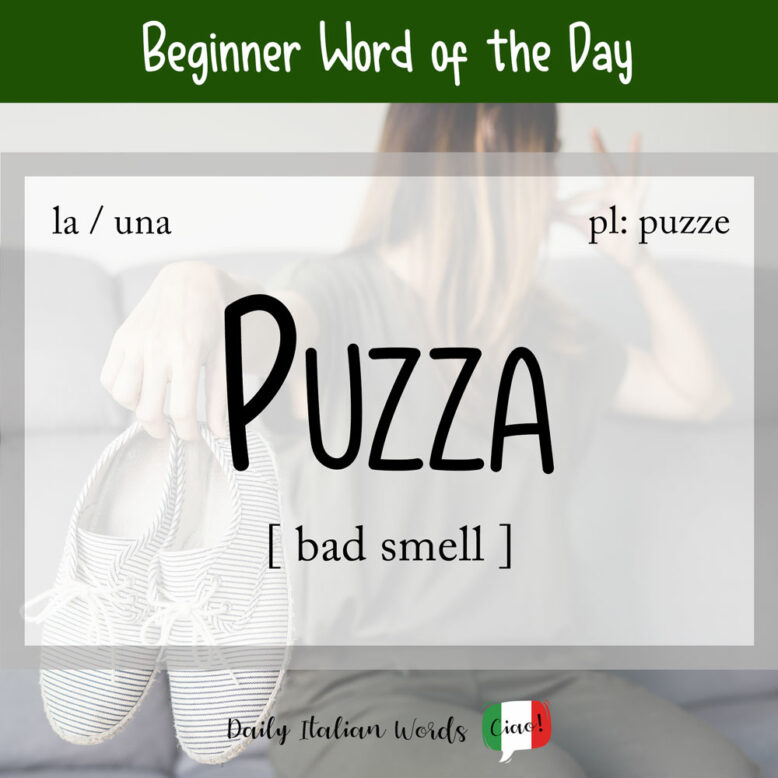What do a wet dog, an overflowing garbage bin and mouldy blue cheese that’s been left in the fridge too long all have in common? They all emit a terrible puzza (feminine, plural: puzze), the Italian word for bad smell, stink or stench!

If you’re having trouble committing this word to memory, I find it helps to think of the English term putrid.
When an Italian expresses his or her objection to an unpleasant odour, you can expect to hear one of two exclamations: Che puzza! (What a smell!) or Senti che puzza! (literally: Smell that bad smell!)
Ma che puzza di chiuso! Apriamo le finestre!
What a musty smell! Let’s open the windows!
Important: Many dictionaries such as Treccani list the masculine version puzzo as the classic term for bad smell. However, in most regions of Italy such as the north where my husband was born, the feminine version puzza is far more common, particularly in the spoken language. One region where you will likely hear puzzo in conversation rather than puzza is Tuscany.

If you use the idiomatic expression avere la puzza sotto il naso (to have a smell under one’s nose), the implication is that a person is snobbish and looks down on others.
Related to puzza is the verb puzzare which means to smell bad. Just as we can say that something smells fishy in English, you can use puzzare figuratively to talk about a situation that arouses feelings of doubt or suspicion.
Questa faccenda mi puzza d’imbroglio.
There’s something fishy about this whole situation.
Some other related terms include:
- puzzolente = smelly
- puzzetta = fart
- puzzola = skunk
- puzzone/a = a smelly person, a despicable person
In the Roman dialect, the expression andare in puzza (literally: to go in smell) means to be in a huff or to get one’s knickers in a twist.
Heather Broster is a graduate with honours in linguistics from the University of Western Ontario. She is an aspiring polyglot, proficient in English and Italian, as well as Japanese, Welsh, and French to varying degrees of fluency. Originally from Toronto, Heather has resided in various countries, notably Italy for a period of six years. Her primary focus lies in the fields of language acquisition, education, and bilingual instruction.


